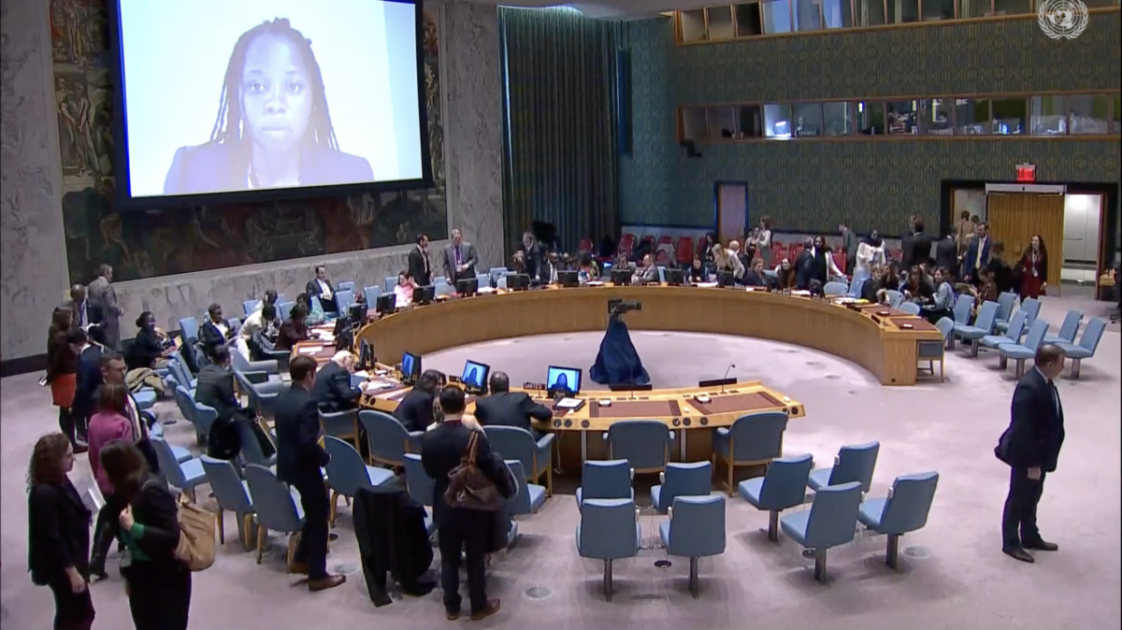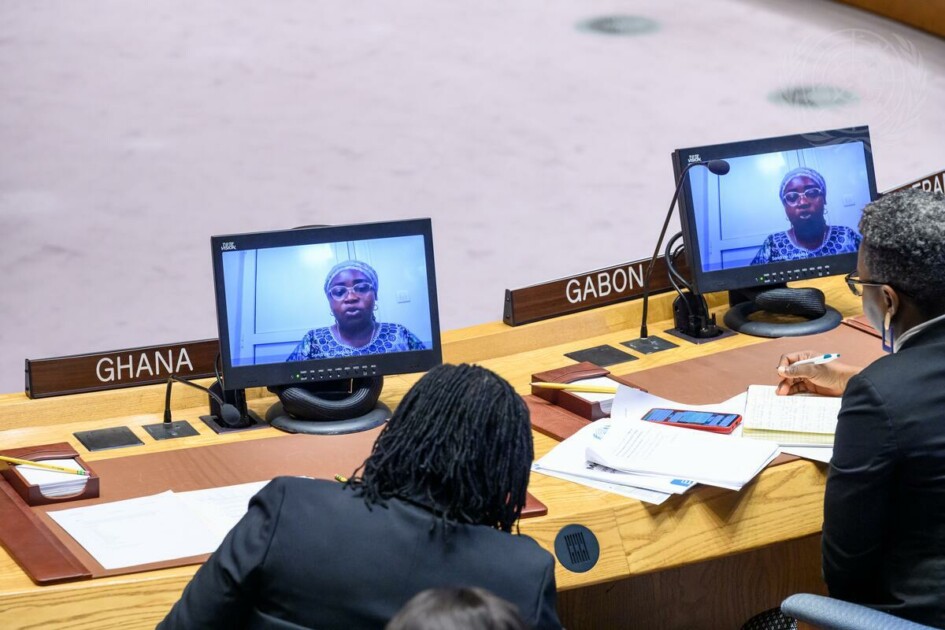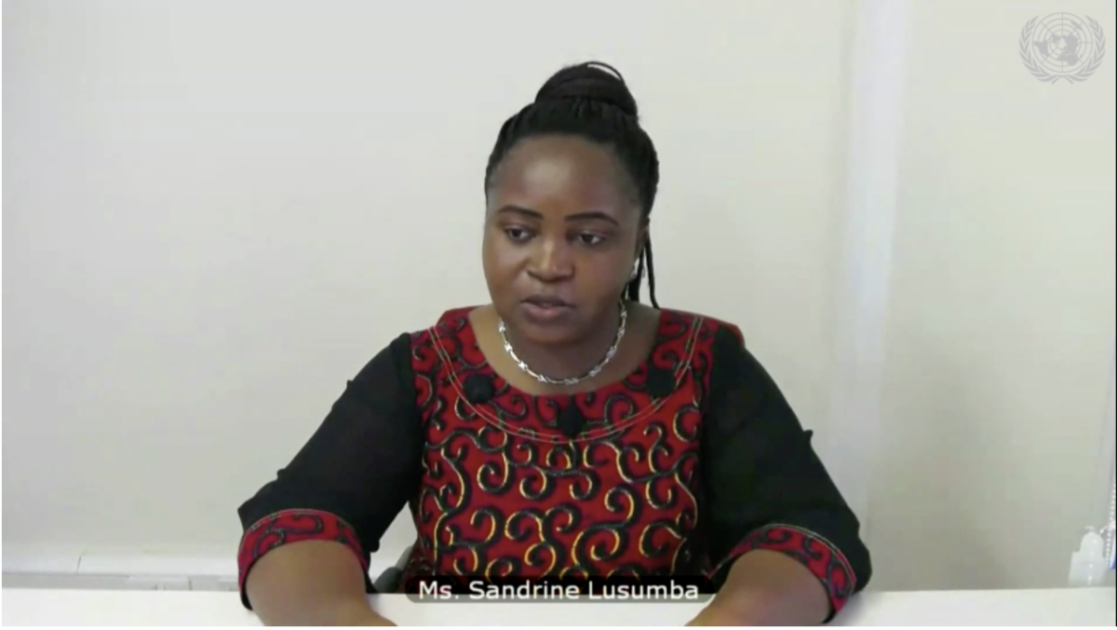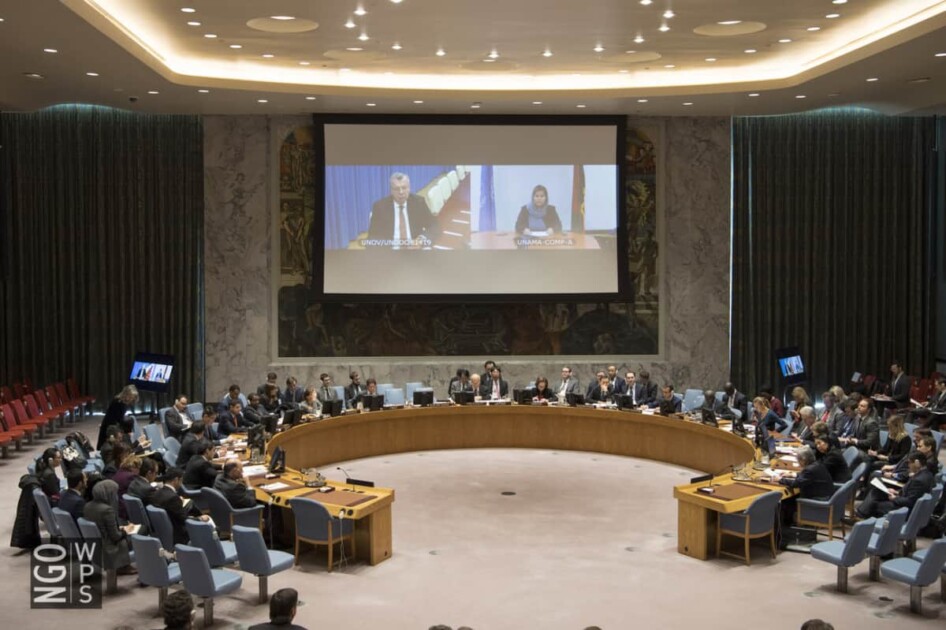Democratic Republic of the Congo
Women in the Democratic Republic of Congo continue to face widespread sexual violence, disease, and displacement in conflict situations arising from clashes between dozens of armed groups. Often, sexual violence and rape are used as terror tactics and weapons of war, and despite the ratification of the Convention on the Elimination of All Forms of Discrimination against Women (CEDAW) and the Women’s Platform for the Peace, Security and Cooperation Framework, women are still largely underrepresented in peacebuilding efforts. Additionally, women activists face rape as a form of torture by government actors who disagree with their political activity. The United Nations Organization Stabilization Mission in the DRC (MONUSCO) aims to provide protection for civilians, including reducing the threat of armed groups perpetrating sexual and gender-based violence, monitoring and reporting on sexual violence and ensuring women’s participation in stabilization and national political dialogue.
Democratic Republic of the Congo
Women in the Democratic Republic of the Congo continue to face widespread sexual violence, disease, and displacement in conflict situations arising from clashes between dozens of armed groups. Often, sexual violence and rape are used as terror tactics and weapons of war, and despite the ratification of the Convention on the Elimination of All Forms of Discrimination against Women (CEDAW), and the Women’s Platform for the Peace, Security and Cooperation Framework, women are still largely underrepresented in peacebuilding efforts.
Additionally, women activists face rape as a form of torture by government actors who disagree with their political activity. The United Nations Organization Stabilization Mission in the DRC (MONUSCO) aims to provide protection for civilians, including reducing the threat of armed groups perpetrating sexual and gender-based violence, monitoring and reporting on sexual violence and ensuring women’s participation in stabilization and national political dialogue.
Current and Past Recommendations to the UN Security Council (Monthly Action Points)
The Security Council is expected to consider a report on the Peace Security and Cooperation Framework (PSC) and a report and mandate renewal for MONUSCO. The Council should follow up on its November PRST 2013/17,which calls for “…the equal and full inclusion of women at all stages of conflict resolution, reconstruction and the promotion of peace including through taking account of the call of the 11 July 2013 Bujumbura Declaration for ensuring that benchmarks, indicators and follow-up measures of the plan of implementation for the PSC Framework are gender-sensitive.” The Council should also inquire into specific information on: targeted attacks of any nature on women, including women human rights defenders; the impact of the humanitarian situation on women and girls; and consultation with women’s human rights organizations in all stabilization and peace consolidation efforts. When considering the mandate renewal of MONUSCO, the Council must support women’s participation and empowerment throughout core elements of the mission and in all political, peace and security processes, language absent from the previous mandate, SCR 2098 (2013). While MONUSCO is working to transfer a number of tasks to the country team, including key functions regarding women’s political participation and human rights, it is essential that there is explicit support for the broad range of women, peace and security concerns in the core functions of the MONUSCO mandate, e.g. ongoing support for the PSC Framework; security sector reform; DDR and DDRRR; Stabilization and Reconstruction plan for Eastern Democratic Republic of the Congo (STAREC); and the International Security and Stabilization Support Strategy (ISSSS). This should include explicit support in the mandate for senior gender advisers. The Council should support women’s access to basic health and psychosocial services, in addition to continuing its strong support for women’s protection concerns, particularly protection against sexual and gender-based violence, in the mandate renewal.
Relevant Resources









